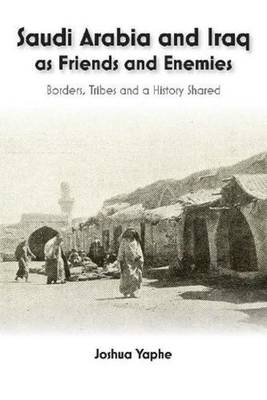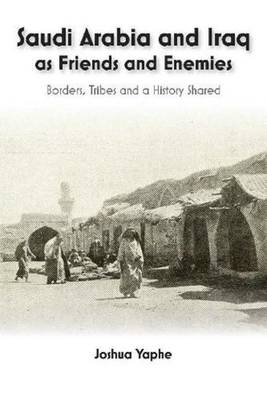
Bedankt voor het vertrouwen het afgelopen jaar! Om jou te bedanken bieden we GRATIS verzending (in België) aan op alles gedurende de hele maand januari.
- Afhalen na 1 uur in een winkel met voorraad
- Gratis thuislevering in België vanaf € 30
- Ruim aanbod met 7 miljoen producten
Bedankt voor het vertrouwen het afgelopen jaar! Om jou te bedanken bieden we GRATIS verzending (in België) aan op alles gedurende de hele maand januari.
- Afhalen na 1 uur in een winkel met voorraad
- Gratis thuislevering in België vanaf € 30
- Ruim aanbod met 7 miljoen producten
Zoeken
Saudi Arabia and Iraq as Friends and Enemies
Borders, Tribes and a History Shared
Joshua Yaphe
Hardcover | Engels
€ 271,45
+ 542 punten
Omschrijving
Saudi Arabia and Iraq have a shared history, as both friends and enemies at one and the same time, and their growth as modern nation-states must be understood in that joint context. This book establishes a new narrative and timeline for bilateral relations between the two countries, while examining the work of other Arab and Western scholars, in order to excavate the biases underlying so much previous work on this topic. In doing so, it proposes a new way of looking at state formation and boundaries in the Middle East, by showing how the interactions of regional neighbors left an indelible imprint on the domestic politics of one another. The two different visions for managing the border that Saudi Arabia and Iraq developed in the 1920s generated mistrust on both sides, leading to a gradual process of estrangement that lasted through the 1950s and beyond. Ibn Saud made strenuous efforts to preserve the socio-economic ties that united the communities of southern Iraq with the Najd and, in turn, those efforts helped encourage a wave of Sunni Arab migrants from Iraq who helped build the Saudi state. Iraqi politicians and clerics attempted to use the issue of Ikhwan raids as a rallying cry for promoting their political agendas, thereby contributing to a growing sectarian discourse and undermining the nationalist rhetoric of the 1920 Revolution. The two countries had a remarkable and long-lasting impact on one another, even as they drifted farther and farther apart through mutual fear and suspicion.
Specificaties
Betrokkenen
- Auteur(s):
- Uitgeverij:
Inhoud
- Aantal bladzijden:
- 244
- Taal:
- Engels
Eigenschappen
- Productcode (EAN):
- 9781789761511
- Verschijningsdatum:
- 21/12/2021
- Uitvoering:
- Hardcover
- Formaat:
- Genaaid
- Afmetingen:
- 163 mm x 226 mm
- Gewicht:
- 544 g

Alleen bij Standaard Boekhandel
+ 542 punten op je klantenkaart van Standaard Boekhandel
Beoordelingen
We publiceren alleen reviews die voldoen aan de voorwaarden voor reviews. Bekijk onze voorwaarden voor reviews.









